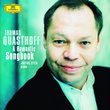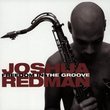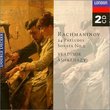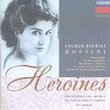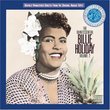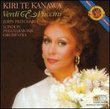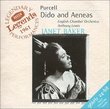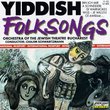| All Artists: Montserrat Caballé Title: Sings Bellini & Donizetti Members Wishing: 0 Total Copies: 0 Label: RCA Release Date: 3/9/1993 Genre: Classical Style: Opera & Classical Vocal Number of Discs: 1 SwapaCD Credits: 1 UPC: 090266145829 |
Search - Montserrat Caballé :: Sings Bellini & Donizetti
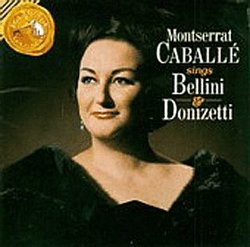 | Montserrat Caballé Sings Bellini & Donizetti Genre: Classical
All the selections on this staggeringly beautiful recital CD were recorded between 1965 and 1972, when Montserrat Caballé's voice was incapable of betraying her, and when she sang as beautifully and expressively as a... more » |
Larger Image |
CD DetailsSynopsis
Amazon.com essential recording All the selections on this staggeringly beautiful recital CD were recorded between 1965 and 1972, when Montserrat Caballé's voice was incapable of betraying her, and when she sang as beautifully and expressively as any soprano within living memory--and probably before then, to boot. Because the voice was in such good shape, with no signs of strain at either end, perfect breath control throughout, and an absolutely full dynamic range--from C to shining C, from pppp to ffff--Caballé was also free to enunciate the text with utter clarity and to make the characters come vividly to life. Her Elizabeth I and Anna Bolena in the Donizetti operas are noble and fascinating, but it is in Bellini that she is utterly irreplaceable. Norma's "Casta diva" has probably never been performed with such intelligence, insight, and exquisite tone, and her duet with Adalgisa (from 1972) is both urgent and tender. And the rarely recorded final scene from Bellini's Il pirata, sung with this much involvement and luster, makes one desperately want to hear the entire opera (yes, Caballé recorded it eventually, but it's hardly a masterpiece). Caballé understands and communicates the music of Bellini like no soprano since Callas--this CD is an important part of any opera lover's collection. --Robert Levine Similarly Requested CDs
|
CD ReviewsBravissima! 07/20/1999 (5 out of 5 stars) "This certainly is an album to treasure. RCA did a fairly good job of restoring these late 60's - early 70s recordings so we can marvel at one of the most beautiful soprano voices ever. Hers is the one of the very few sopranos you can listen to on headphones. I won't say anything bad about Callas, but just try listening to her on headphones, aspirin? Caballe's wonderful silvery yet smooth voice supplemented by peerless pronunciation and vivid characterization goes "straight to the heart." And what pianissimos! She is, of course, renown for these, so don't underestimate her power, no smaller than Callas' but clear, without the shrilling: listen to the beginning of "Havvi un dio!" or the Anna Bolena's Mad Scene. Even with her high tessitura, she is quite capable of producing strong low notes, and never comes across as one of those faceless "canary" sopranos. Her voice could not be mistaken for anyone's, no one sounds remotely like Montserrat! Every one of her interpretations is very personal and touching. Interestingly, even for Bellini, who seemed to be concerned only with sheer beauty of sound, Caballe finds ways to accentuate the real emotion, thereby giving the arias a dramatic "Verdian" touch. She has been recorded probably more than any other soprano, however there's no hype surrounding her name. This is, most likely, due to her modesty, femininity and class, so rare in a Diva, the qualities that shine through on every aria." BEL CANTO PERFECTION! GIFT FROM GOD! Armindo | Greece | 06/22/2003 (5 out of 5 stars) "This recital and the other RCA masterpiece M. Caballe: Rossini, Donizetti, Verdi rarities are two recitals that every opera fan DESERVES to hear! It's a gift for all of us who love the sound of bel canto and opera in general. These are exactly the roles Caballe was born to sing. Her voice and musicianship are wonders! Everything on this CD is sung with such emotion and vocal brilliance that makes me forget any other reading of these famous pieces. Casta Diva has been superbly performed and recorded before Caballe by legends like Callas and Sutherland and it's hard not to compare them. Yet, in my opinion there is no competition. It's Caballe that I will listen to for the ultimate reading of this piece. It's the perfect combination of her gorgeous voice (I can't get enough of her high notes here!) and expressiveness that makes the difference. The same goes for the other tracks of this recital. Just listen how she phrases Imogene's "Col sorriso d'innocenza". It's as if time stops when she utters that phrase. Sadly, Caballe did not completely record Roberto Devereux or Maria di Rohan or Anna Bolena in studio. I would have sacrificed many other recordings of hers just to have her in studio in these roles. "Mira o Norma" is taken from her complete Norma recording and Cossotto's wonderful Adalgisa perfectly compliments Caballe's high priestess. The recital ends with Caballe singing some of her best pianissimi in Bolena's scene.Purchase this recital and discover the world of opera! Just keep in mind that Montserrat Caballe's singing here is addictive!" You are in for a treat of heavenly proportions!!! Armindo | 02/01/2003 (5 out of 5 stars) "I got this recital disc recently and was flabbergasted by Caballé's out of this world singing. Her voice is an exquisite instrument of power, beauty, and elegance. It has a more refined timbre than Sutherland's and is more ethereal than Tebaldi's. She has breath-taking control over her gorgeous voice. The runs and roulades are tossed off cleanly. Often criticized for her caustic, fortissimo high notes, she only delivers beautiful high notes here. Even so, a few of the high notes sound a bit strained, especially the one that accompanies the word "infiorato" in the "Bolena" aria. The only fault with her coloratura technique is that she lacks a real trill. In the "Anna Bolena" aria, she substitutes scales for the ascending trills. However, only the most accomplished coloraturas can pull off those very taxing trills correctly. Two examples are the magnificent Joan Sutherland and the incomparable Beverly Sills. Love you, Beverly! By the way, Caballé has the most ethereal pianissimos that I have ever heard. Then again, I haven't experienced Zinka Milanov's pianissimos. Renata Tebaldi also had great pianissimos, but she didn't sustain them as long as Caballé did and they were not as wispy-thin as Caballé's. They were, however, richer-toned than Caballé's due to Tebaldi's fabulous spinto voice. Simply put, I love Caballé's voice more than those of other sopranos'. It had to be sent from heaven. How else would you explain its origins? Anyway, this CD was my first recording of Montserrat and she didn't fail to please. All the hype surrounding her singing is fully justified. Her "Casta Diva" is an exquisite piece of vocalism teamed with drama. This recording is worth owning for that one aria alone. I didn't care much for Imogene's Mad Scene, but she sang it well nonetheless. Her portrayal of Elizabeth I in "Vivi ingrato" is not the most dramatic, but it is not dull either. She amazes you with the beauty of her singing. No where will you find a more beautifully sung version of this aria. Beverly Sills is more dramatic, but even she can't beat Caballé's exquisite vocalism. Sills gives us the private, tortured woman behind the queen. Caballé gives us Elizabeth the suffering, but regal queen. Her rendition of the aria from "Lucrezia Borgia" makes one want to hear the full recording of that opera with her in the title role. She is truly astonishing. Her "Havvi un dio" is delivered masterfully. The exquisite duet from "Norma", "Mira, o Norma", is rendered tenderly with expert vocalism and dramatic involvement. The mezzo-soprano is competent and has excellent breath control. She sounds unnervingly like Caballé. I believe she is Fiorenza Cossotto. If so, then this track must have been taken from Caballé's complete studio recording of "Norma". The last track, half of Anna Bolena's Mad Scene, is done wonderfully. Again, the vocalism is exquisite. However, I prefer Sills' masterful rendition. She sings just as well as Caballé does, but she is so much more dramatically involved. When she sings about Percy and asks forgiveness for abandoning him, she turns in a frenetic and very exciting performance. And, of course, no soprano, including Callas, sings "Al dolce guidami" so right and so convincingly. When she sings the words "castel natio" before the ascending trills, which are great by the way, her voice matches Donizetti's musical and vocal inflections perfectly. You have to hear it to believe it! It sounds so right that one has to believe that it cannot be bettered. Anyway, back to Caballé. She shows us in this recital why she was considered one of the very few prime donne assoluti in the world in the the period from 1965 to her retirement from the operatic stage a few decades later. To her fans, this is a required recording."
|

 Track Listings (7) - Disc #1
Track Listings (7) - Disc #1